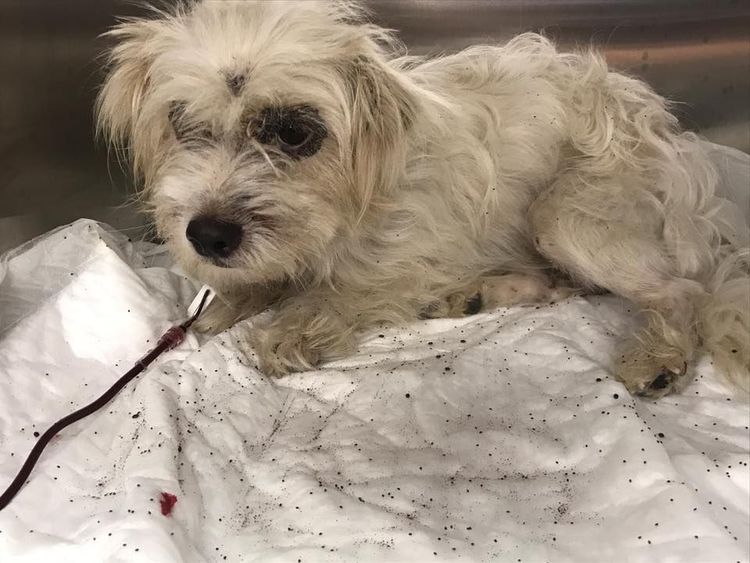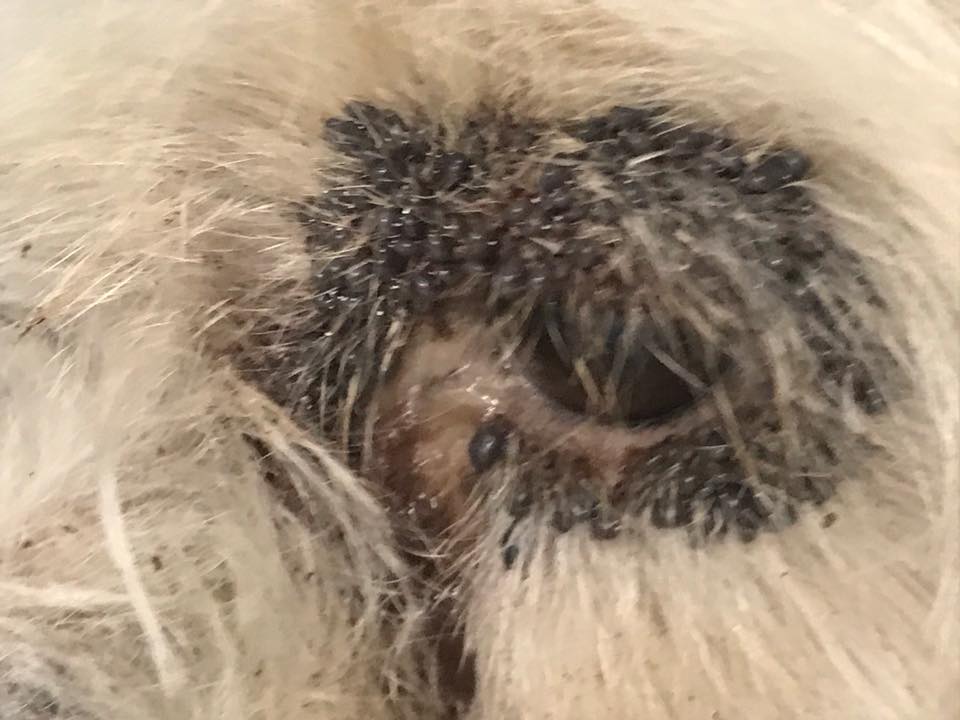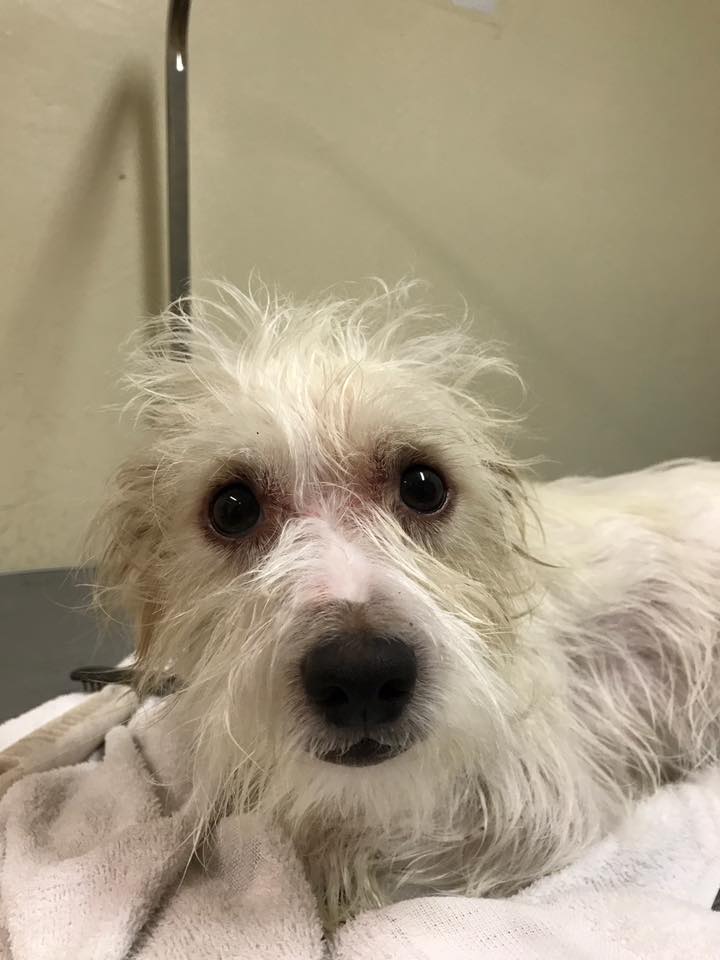When Owen the dog showed up to a shelter with severe blood loss, another donated his blood and saved Owen’s life.
Owen is a 1-year old Terrier mix. At the beginning of this month, he arrived at Kern County Animal Services in California, covered with thousands of ticks.
While he was covered from head to toe with the parasites, the most shocking thing to see was how many ticks the poor pup had around his eyes.

Owen was covered in so many blood sucking ticks that he had become anemic. Because he was lacking so much blood, he was physically weak, had labored breathing, and his gums had even turned white.
Due to the severity of his anemia, Owen required an emergency blood transfusion.

Image: Kern County Animal Services
Can Dogs Even Get Blood Transfusions?
Yes! Dogs can receive blood transfusions, just like humans!
So, how does it work?
According to shelter vet Kimberly Wilson, dogs can receive blood transfusions the same way we do. And just like humans, dogs have different blood types.
However, unlike humans, a dog’s first blood transfusion does not have to be a match with their blood type. But any subsequent transfusions do need to match.
RELATED: This Dog Donates Blood to Help Kittens
According to Wilson, a blood transfusion means introducing foreign blood cells into the dog’s body. Dogs’ blood type is actually determined by antigens present on their red blood cells.
The first time a dog’s body is exposed to a non-matching blood type, it doesn’t react to the antigens. But if introduced a second time, the dog’s body will turn around and attack it.
Another Dog Steps In To Help
Max, mastiff who is also a resident at the shelter, donated 450 milliliters of blood to Owen. This turned Owen’s situation from critical to stable, and saved Owen’s life.

Image: Kern County Animal Services
After the transfusion, Owen’s blood count returned to normal levels, and he was promptly given multiple baths and some much-needed tick medication.
Since that fateful day at the shelter, both Owen and Max have been happily adopted. Hooray for happy endings!

Image: Kern County Animal Services
How Your Dog Can Save Lives
Thousands of dog blood transfusions are needed every year, but there is a severe shortage of available blood to donate.
Usually, a practice must procure this blood from a nearby emergency animal clinic, or just a local dog whose owner is willing to donate blood last-minute.
As dogs must meet some requirements to be a donor, it is easy to imagine why in some emergency situations, it might be very difficult to actually find blood for a last-minute transfusion.
Typically, dogs must meet the following requirements:
- Be between 1-7 years old
- Weigh at least 50 pounds
- Have no heart conditions
- Be on no medications (other than flea and tick preventative)
- Have the canine universal blood type
Your dog can become a blood donor, either on a one-time-only basis or a regularly occurring basis.
Requirements and availability of resources vary by state and location. It is costly for a veterinary practice to double up as a blood bank, so not every vet has this option available.
However, there are national Blue Pearl Bloodbanks located in Tampa, Seattle, Richmond, and Houston.
Additionally, there are other national blood banks located around the country:
- Animal Blood Resources International (California and the Midwest)
- Eastern Veterinary Blood Blank (Annapolis, Maryland
- Hemopet (Garden Grove, California)
If you would like to make your pet available as a blood donor and save precious lives, please consult your vet to find out whether your animal is eligible, and which next steps to take.













